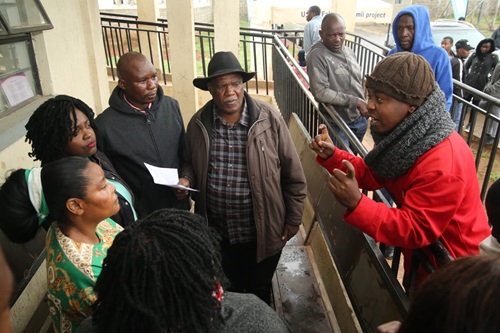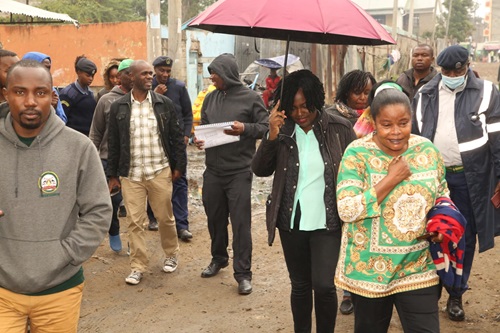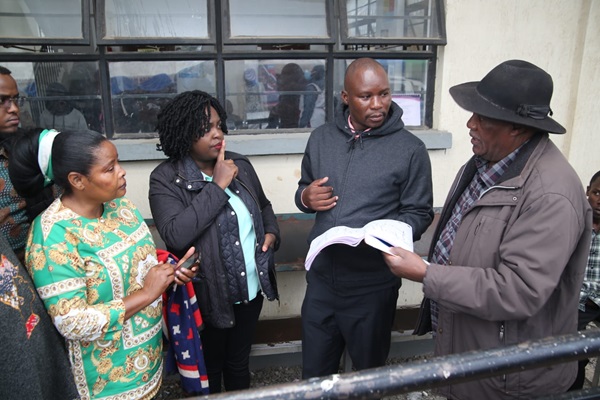Nairobi 9th August 2024,
Nairobi City County Chief Officer for Housing and Urban Renewal Ms. Lydia Mathia today embarked on a familiarization tour of projects under the Kenya Informal Settlement Improvement Project (KISIP II) in Nairobi.
Ms. Mathia who recently moved from Public Participation, Citizen Engagement and Customer Service subsector, met the Settlement Executive Committee member’s (SEC),Grievance Redress Committee Member’s (GRC) , consultants contractors and Sub-County Administration members from three settlement schemes namely: Embakasi Village, Kayole Soweto and Kahawa Soweto schemes which are part of the KISIP II project’s earmarked for improvement.
 In her address to the members, Ms. Mathia applauded the members for strides made so far which she attributed to the harmonious relationship among all the stakeholders. She stated that her number one priority will entail supporting the various stakeholders in all activities lined up to enhance implementation and delivery of the project.
In her address to the members, Ms. Mathia applauded the members for strides made so far which she attributed to the harmonious relationship among all the stakeholders. She stated that her number one priority will entail supporting the various stakeholders in all activities lined up to enhance implementation and delivery of the project.
KISIP II is a Government of Kenya project funded by the World Bank, the Swedish International Development Agency (SIDA) and the Agence Française de Development (AFD) through the National Government.
The first phase of the project dubbed KISIP 1 kicked of in 2011 and drew it’s curtains in 2020, while the second phase took off in March 2021.
The objective of the project is to improve the living conditions in selected informal settlements by enhancing security of tenure and improving infrastructure based on spatial plans developed in consultation with the community.
Nairobi City County is among 23 Counties set to benefit from the IDA & AFD funded project under the Kenya Informal Settlement Improvement Project II intervention.
 A total of eighty one (81 No.) settlements national wide have been earmarked for KISIP II intervention and implementation will be in two phases.
A total of eighty one (81 No.) settlements national wide have been earmarked for KISIP II intervention and implementation will be in two phases.
The project is divided into four components namely;
Component 1: Integrated settlement upgrading with two sub components
1.1 Tenure Regularization
1.2 Infrastructure Upgrading
Component 2: Socio economic inclusion planning
Component 3: Institutional capacity development for slum upgrading and
Component 4: Program management and Coordination.
Ends/..

